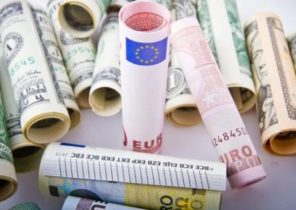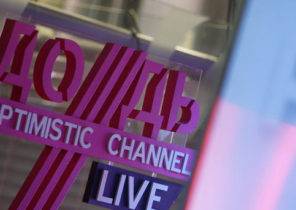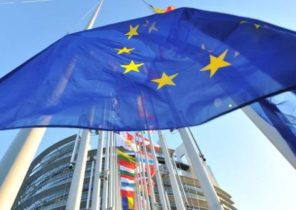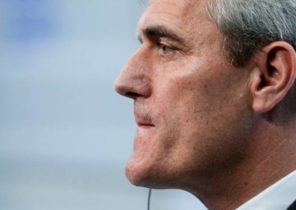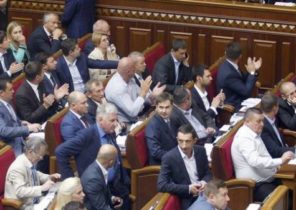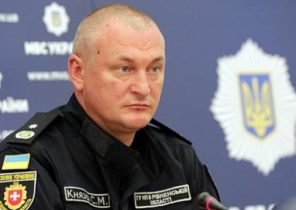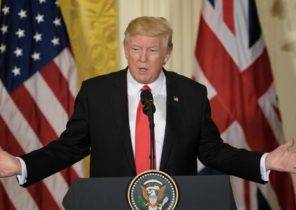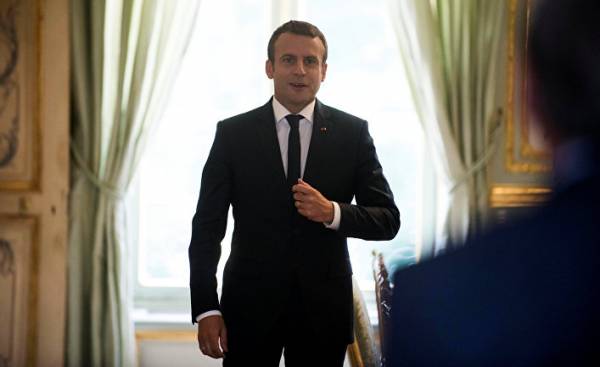
For the sake of fighting terrorism, the French President seeks to avoid the collapse of the Syrian state and no longer requires the departure of the dictator of the political process.
A change of tone in Paris were already being felt. The challenge is to break the deadlock over talks on Syria and find a political solution to the conflict, who for six years claimed the lives of over 350 thousand people and made 6 million Syrians refugees, destabilizirovat thereby the entire region. But if it only meant, now the head of state said this openly. “Innovation on my part in this matter is that I did not say that the departure of Bashar al-Assad is a precondition for everything. The fact that no one has presented me with legitimate successor,” said Emmanuel macron, published June 22 the big interview to Le Figaro and seven other European publications.
May 29 at Versailles on the basis of open talks with Vladimir Putin which touched and Syria, a new President, unlike Francois Hollande did not insist on the fact that “Bashar al-Assad cannot represent the future of Syria”. The next day he reassured arrived at the Elysee Palace representatives of the Syrian opposition abroad, assuring them of the willingness of France to promote “inclusive political process” in the spirit of resolution 2254 of the UN and his own desire for the withdrawal of the Syrian dictator at the completion of this process.
Anyway, all this is clearly no longer among the priorities. When the Minister of foreign Affairs Jean-Yves Le Drian went to Moscow on 20 June to meet with his Russian counterpart Sergei Lavrov, he didn’t say a word about the fate of Bashar al-Assad, whose name was not even mentioned in their four-hour conversation.
Pragmatism
Anyway, the 180-degree turn of speech does not go here. The fact that the departure of the dictator for two years is not considered a pre-condition for the ongoing negotiations in Geneva to find a political solution. Paris, and also supported the revolt of Western and Arab capitals, it was obvious that to real peace and stabilization of Syria does not come with the retention of power by the dictator, who is responsible for hundreds of thousands of deaths in the conflict and who also without hesitation used chemical weapons against its own population.
“Nobody or almost nobody, with the possible exception of Russia and Iran which have practically no funds, do not give money to rebuild a war-torn Syria, if the political process will be completed only superficial restructuring of the regime”, — the representative of diplomatic circles. At the same time in Paris now recognize that “the persistent demand for the dismissal of Assad ultimately proved to be counterproductive.” In the diplomatic sphere there is no progress and it seems that the “little Geneva”. It should be noted that although Emmanuel macron said in an interview with “the need for a diplomatic and political road map”, he never mentioned the United Nations and resolution 2254, which was adopted by the security Council in 2015 and considered as a basis of settlement of the conflict.
The tone has changed. For the past month, the French diplomacy’s emphasis that “the priority is the fight against terrorism and the elimination of “Islamic state” (banned in Russia as a terrorist organization — approx. ed.)”, and the prevention of chaos and the transformation of Syria into a “failed state”. This new tone was definitely heard in Moscow that France intends to fully return to the game post-ISIS. The atmosphere is conducive to finding “the original way out of the crisis with a rate on pragmatism,” — say in Paris, preparing thus the ground for a paradigm shift on the Syrian issue.
A relative lull
Begun under the auspices of Russia, Iran and Turkey peace talks in Astana were due to resume on 4 July, and supervised by the UN Geneva process — a week later. “The priority is to combat terrorism, but to put an end to the conflict can only an inclusive political process with the preservation of the territorial integrity and unity of the country and from Russia requires a clearer part” — reminiscent of Paris. Moscow has serious reasons to do so. Signed two months ago in Astana the agreement on the formation of the four zones of de-escalation (in particular around Idlib) has led to a relative lull in the fighting. Vladimir Putin saved the Syrian regime by military intervention in September 2015, but failed to turn military victories into political success. Despite the propaganda of the Russian media, most of the public is worried about the “new Afghanistan” that can be crippling in the future presidential elections in March 2018. All of this is layered on at least unpredictable American policy in Syria. Thus, before the French President from whom much is expected in the international arena, real opportunities for action.
“Tough and direct”
“I think that in Russia respect of Emmanuel Macron as hard and direct opponent,” said former foreign Minister Hubert védrine, Hubert (Hubert Védrine). During a meeting in Versailles, the French President showed determination in the conversation with his Russian counterpart, stressing the readiness of France (even alone) to carry out air strikes against those who used chemical weapons in Syria. This was especially clear symbol of the rigid position that only the regime has planes that drop bombs with sarin gas, during the attack in Khan Sheyhun 4 April (88 people). The head of state returned to this argument in an interview: “If you set the red line, but can’t gain respect, then show its weaknesses. If it turns out that the country used chemical weapons, and we can trace its origin, then France will strike for the destruction of discovered stockpiles of chemical weapons.” He recalled the precedent of 2013, when the Obama administration backpedaled that “weakened France” and unleashed Vladimir Putin hands in other regions, in particular in Ukraine.
These words imply obligation. Whether they involve only the use of sophisticated chemical weapons like sarin gas? In order to avoid American and French strikes regime agreed in the fall of 2013 for the elimination of its chemical Arsenal under international control, which for the most part managed to achieve, although he retained some stocks, as evidenced by the attack in Khan Sheyhun. French diplomacy, by the way, hopes for cooperation with the Kremlin for “completion of unfinished work on recovery.”
